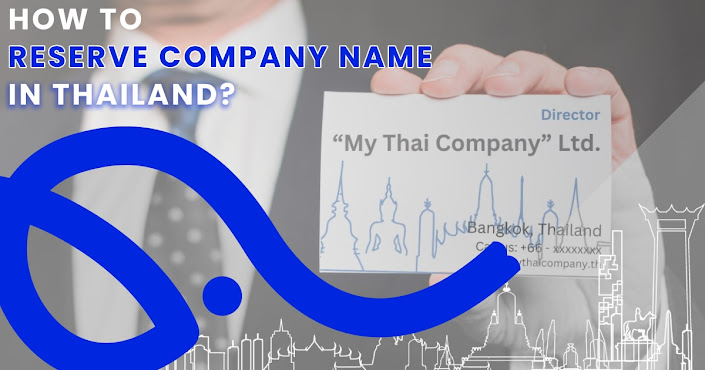Starting a business in Thailand is an exciting endeavor, but it comes with certain administrative procedures that need to be followed meticulously. One of the first steps in registering a company in Thailand is reserving a unique and suitable company name. This article will guide you through the process of company name reservation in Thailand, outlining the steps and important considerations.
Importance of a Good Company Name
Choosing the right company name is crucial for your business in Thailand. A well-thought-out name can help your company stand out in the market, establish a brand identity, and gain recognition. It also plays a significant role in building trust and credibility with your customers, partners, and stakeholders.
Steps to Reserve a Company Name in Thailand
Preliminary Name Check
Before formally reserving a company name, conduct a preliminary name check. This can be done through the Department of Business Development’s (DBD) website or by visiting their office. However, take our suggestion on this – either you should know or understand the Thai language, or have someone by your side with the capability to do so. The goal is to ensure that the name you desire is unique and not already registered by another company.
Reserve the Name
Once you’ve confirmed the availability of your chosen name, you can officially reserve it. This can be done online through the DBD’s website or in person at the DBD office. Keep someone who knows and understands the Thai language by your side for smooth communication with the DBD officials. A reservation fee is typically required.
Submission of Required Documents
You will need to provide certain documents when submitting your name reservation request. These documents may include a copy of your passport, proof of address, and a completed application form. Make sure to check the specific requirements with the DBD.
Name Approval
The DBD will review your name reservation application. If the name is unique and complies with their guidelines, it will be approved. This process can take a few days, and you will receive a confirmation once your name is officially reserved.
Name Reservation Period
In Thailand, a company name reservation is typically valid for 30 days. You must register your company within this period using the reserved name, or you may need to repeat the name reservation process.
Company Registration
With your reserved name, you can proceed with the registration of your company. This involves preparing the necessary documents, determining the business structure (limited company, partnership, etc.), and fulfilling other legal requirements.
Important Considerations
Language
Your company name can be in Thai, English, or a combination of both. Ensure that the name is easy to pronounce and memorable for your target audience.
Uniqueness
The name you choose must be distinctive and not too similar to existing company names. The DBD has strict guidelines regarding name uniqueness.
Trademark Research
Conduct thorough research to ensure your chosen name is not trademarked by another business, which could lead to legal disputes.
Relevance
Consider how the name relates to your business activities. A relevant name can help potential customers understand what your company does.
Future Growth
Think about the scalability of the name. Will it still suit your company if it expands or diversifies its offerings?
Now maintaining all these steps and adhering to the regulations meticulously,
Conclusion
Reserving a company name in Thailand is a crucial initial step when starting a business. It’s important to choose a name that reflects your business identity, is easy to remember, and complies with legal requirements. By following the steps outlined in this guide and considering the key factors mentioned, you can successfully reserve a company name and set your business on the right path in the vibrant Thai market.
However, keeping the constraints in mind, you may face various hurdles in the process. Therefore, we recommend that you consult a corporate law firm in Thailand to easily swim through the process successfully and get your preferred name for your business in Thailand. Email us at officer@konradlegal.com to get in touch with our Thai corporate law experts instantly!






.jpg)
